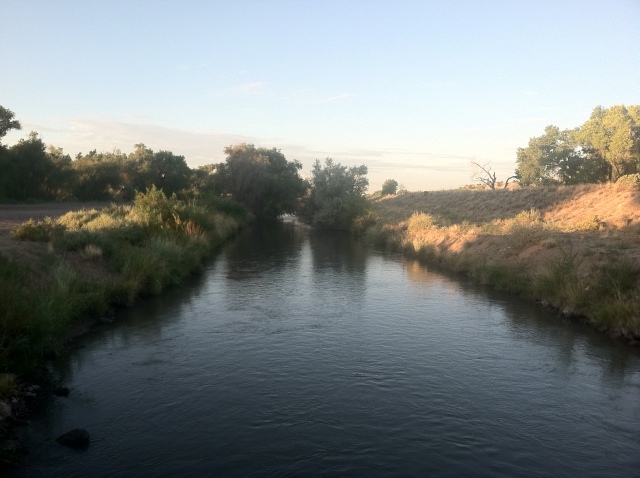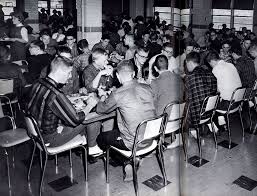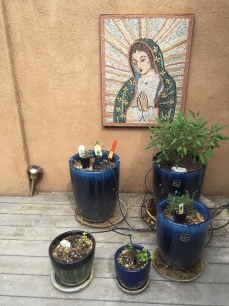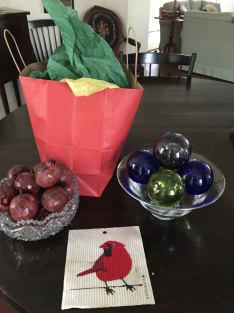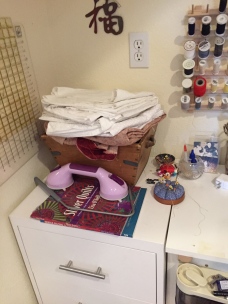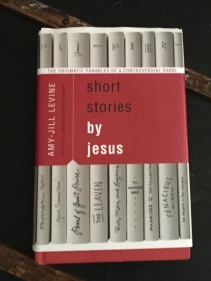This feast we celebrate today–this ancient story we hear again this year
is not really about those wise ones from the East:
Be they kings or astrologers,
Zoroastrians or lapsed Jews,
Babylonians or even descendants of the people of the exile;
It’s not about the star,
Its brilliant light,
Or even the remarkable convergence of planets
in the pre-dawn sky;
It’s not about those gathered around the baby
Be they shepherds or kings,
Or cattle mewing or lambs bleating;
And it’s surely not about Herod that venal king
Known for his mendacity,
His capricious cruelty,
And eliminating all threats to his questionable authority.
No. This feast we celebrate today
This great feast of Epiphany,
This feast that celebrates God’s light shining in our world—
is about the baby
On whom the star shines its light;
Around whom the wise ones,
the shepherds,
the cattle and the lambs
all gather in the deep, dark night.
This feast we celebrate today, this Great Feast of Epiphany is about that baby
cradled in his mother’s arms, God with us, Emmanuel.
Not a sunshine God or a summer Divine;
Not a God who visits only the most deserving of our kind;
Not God who comes for a visit, stays awhile and then leaves;
But God with us on our darkest days,
God with us through our deepest fears
and also in those most precious of moments when the whole universe seems to sing.
God with us, now and always.
God with us, Emmanuel.
To the people stumbling back from generations in exile and to the people who stayed behind in a war-ravaged Jerusalem, to a people who walked in darkness—the darkness of their temple destroyed and torn down, of families forced apart, to a people who lived in the deepest darkness of loved ones killed before their very eyes, the prophet says most forcefully:
Raise your eyes and look about
As you behold, you will glow
Your heart will throb and thrill.
That’s not a suggestion; that’s not a request; that’s a promise that in the moment you see the hand, the glory, the child of God, you, too, will glow with God’s glory; you, too, will shine God’s light.
Like those people of the exile, like their kin scratching out a life for themselves in the rubble of Jerusalem, like those wise ones traveling for months across the desert for just a glimpse of God’s glory, like those shepherds approaching the manger, we, too, know darkness; we, too, long for light.
There is no avoiding or denying the darkness of our shared days: children still sequestered from their parents in shelters and tent cities on our border; worshippers in a church in Texas and a synagogue in Pittsburgh shot down as they pray; government employees held as pawns in a forced shutdown over a wall.
There’s the darkness of our own days too: worry about bills piling up, watching as loved ones struggle, feeling the grip of sadness on our shoulders. We, too, know darkness.
And yet to us the prophet says most forcefully:
Raise your eyes and look about
As you behold, you will glow
Your heart will throb and thrill.
That’s more than a suggestion;
That’s more than a request;
That’s more than a promise.
That’s an invitation to Epiphany, an invitation to take stock (people do that at this time of year)—to take stock of the many epiphanies, the many moments in which you’ve caught a glimpse of God in your life or in your world or in the lives of those around you, the times when people who cross your path have been a beam of God’s light in your life.
Perhaps in the sound of the migrating cranes flying overhead—heard but yet unseen;
Or in a moment of tenderness in an ICU when a loved one rubs oil
into the dry cracked skin of one who has laid there for days;
Or in a hard conversation that opens the way to genuine reconciliation;
Or in glimpse of an inflatable swimming pool like the one that used to live just outside St. Michael’s far west door;
Or in any one of a multitude of moments.
Take time now to step into that invitation to Epiphany. Raise your eyes and look about, open your heart and look back.
Bring to mind some of those epiphanies, those moments when God’s light has shined in your life. Linger a minute. Soak in the warmth of that light.
We won’t stay there for long. Just a moment or two. Then I will call us back with a blessing prayer.
Let us pray:
God has called you out of darkness into his wonderful light.
May you experience his kindness & blessing and be strong in faith, in hope and in love.
Because you are followers of Christ, Who appeared on this day as a light shining in the darkness, may he make you a light to all your sisters and brothers.
The wise men followed the star and found Christ who is light from light. May you too find the Lord when your pilgrimage is ended. Amen

